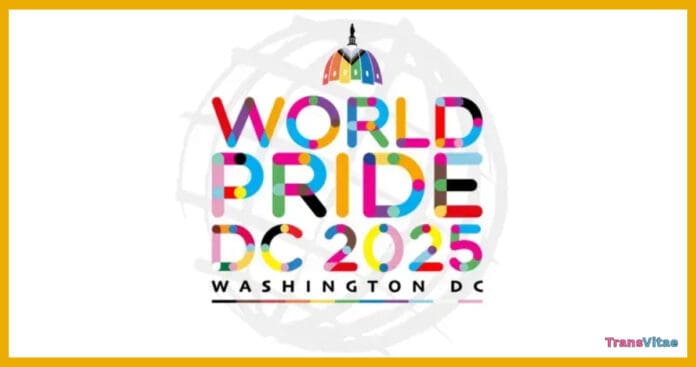Organizers of WorldPride 2025, set to take place in Washington, D.C., from May 17 to June 8, have issued a rare travel advisory specifically aimed at transgender and nonbinary international visitors, citing growing concerns over safety and discrimination under the Trump administration’s return to power.
The Capital Pride Alliance, the local nonprofit responsible for organizing this year’s global LGBTQ celebration, released a statement Friday urging caution for trans travelers. The group emphasized the importance of “making an informed decision” before entering the United States, especially for individuals whose identity documents may not align with their gender identity due to recent federal policy changes.
“Traveling with caution and educating ourselves is regular practice for LGBTQ+ people,” the Alliance stated, adding that they are working closely with advocacy groups and legal experts to monitor the evolving legal landscape.
The warning comes in response to President Donald Trump’s January 20 executive order, which redefined gender federally as strictly male or female based on sex assigned at birth. The order immediately impacted transgender Americans by prompting the State Department to suspend the previous policy that allowed individuals to self-select gender markers—including the “X” designation—on U.S. passports. While the administration claims the policy is about consistency in documentation, advocates say it’s yet another attack on trans existence.
“This has created not only confusion but fear,” said Ashley Smith, president of the Capital Pride Alliance board. “We’re hearing from trans individuals abroad who are scared to travel, worried about being detained or having their passports forcibly altered. This is no longer just policy—it’s personal.”
Several countries—including Denmark, Finland, and Germany—have already issued formal warnings to their LGBTQ+ citizens, advising them to reconsider travel to the U.S. due to increasing hostility toward gender-diverse people. In Canada, Egale Canada, the country’s largest LGBTQ+ advocacy organization, announced it would not participate in WorldPride, citing safety concerns for gender-diverse staff. The African Human Rights Coalition has taken a similar stance.
Trans actress Hunter Schafer and other high-profile individuals have recently reported on social media that their U.S. passports were changed without their consent, reverting to reflect their assigned sex at birth—further fueling global concern.
As safety fears rise, so do financial pressures. According to Capital Pride Alliance, corporate sponsors have begun to back away, citing compliance with Trump’s diversity-related executive orders. Federal contractor Booz Allen Hamilton was among the first to withdraw support. San Francisco Pride reported losing $300,000 in funding after Comcast, Anheuser-Busch, and Diageo pulled out. Pride Houston noted a 75% reduction in support, equating to a $100,000 shortfall.
Council of Governors Vice Chair Charles Allen expressed deep disappointment, stating, “These declines in participation and sponsorship aren’t because of our local communities—they’re the result of shameful federal policies that target the most vulnerable among us. Fear is being weaponized.”
Despite this, WorldPride is still expected to draw up to 2 million attendees, but questions remain: How many international guests will still come? And how many will feel safe enough to?
The Bottom Line
While Capital Pride Alliance is not currently advising transgender people outright to stay away, Executive Director Ryan Bos said that a more explicit advisory may be released soon. “We are weighing every option, and we’re listening to the community. No one should have to risk their safety to celebrate who they are.”
At a time meant for global celebration and solidarity, it is disheartening—though not surprising—that the United States, once a beacon for LGBTQ+ progress, is now a place where trans people must weigh the risks of simply showing up.
As organizers, advocates, and communities around the world grapple with these sobering realities, one thing is clear: Pride persists, but so does the fight for dignity and safety—especially for transgender people in America.


